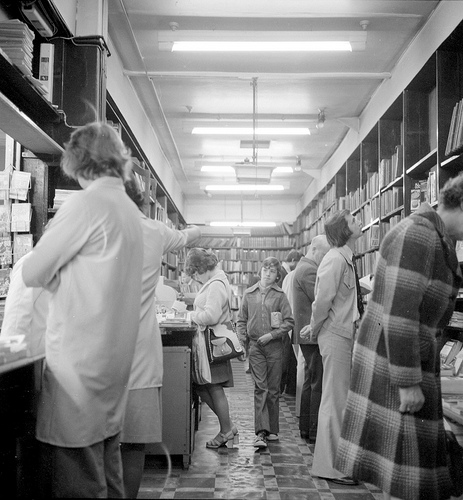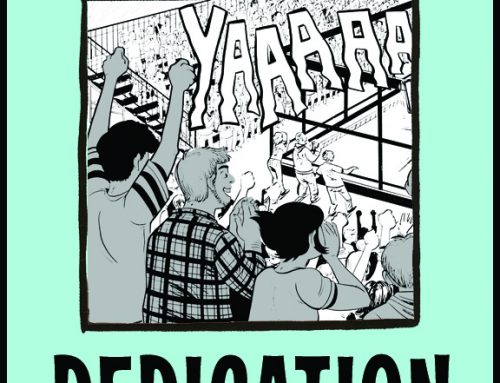test heading
(photo from the Tyne & Wear Archives and Museums. No distributors were involved (or harmed) in the making of this picture.)
What is a distributor?
Despite popular opinion, when you would like a book from First Second, you don’t get it by having one of the First Second staff people go off to the building’s storage room, pull a copy of the book, and send it off to you (or your local bookstore or library or what-have-you) in exchange for money.
Instead, we have a warehouse full of people (which we keep in Virginia) which we use to mail you and bookstores and libraries copies of our books. They have systems! And they spend all of their time being detail-oriented so that we don’t have to.
But we go even further than that in not sending our books ourselves! It turns out that our warehouse — as good at sending books out as they are — mostly does not spend their time sending individual copies to individual people. Instead, they spend most of their time sending out books to distributors.
What’s a distributor?
A distributor is an intermediary between publishers and bookstores and libraries and schools. Instead of getting books directly from the publisher, stores and schools and libraries can order from a distributor.
What are the benefits of working with a distributor instead of a publisher?
One-stop ordering! If stores order books from First Second’s parent company, Macmillan, they can also order books from some of our sister companies at the same time. Unfortunately, stores can’t order every single book that’s in print — they can only get books that we publish. That means that if a store wants books from Random House, Penguin, S&S, Harper Collins, etc., they’ll have to open an account with another publisher and order books from them. The number of publishers in existence is dizzying — a store or library could literally have hundreds of accounts that they’d have to keep track of orders and billing with. But if a store works with a distributor, they should be able to get them books from everyone all at once.
Discounts! Most publishers and distributors offer discounts based on the amount that a store is ordering. So stores may get a small discount if they’re ordering two copies of a new book from one publisher, five copies of another new book from a different publisher, and four copies of yet another new book from a different publisher. But if a store orders all those books in a single order through a distributor (and order a similarly high volume from them regularly), they may get a better discount.
Location! Macmillan has just the one warehouse, which is in Virginia. But there are a number of national distributors that have warehouses that may be closer to a specific store, or local distributors whose warehouses are close to specific libraries. If a store or library want a book quickly, instead of waiting for it to travel cross-country, they can order it from a distributor close by.
Cross-industry knowledge! Publishers are great, but we frequently have my-company-first blinders on. If a library talks to a distributor, they can tell them what the top-selling books are for them across the industry, what they’d recommend for a store or library in their region, etc. This is especially helpful if a store or library is just starting to carry a new category, but it’s also useful as a double-check to make sure they’re not missing something obvious.
And it’s not an either/or option — a store can have an account with a distributor and with a publisher so that every single one of their bases are covered.





